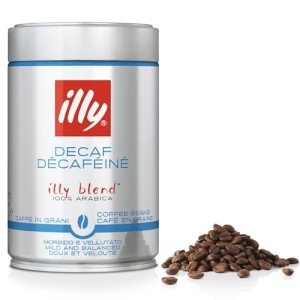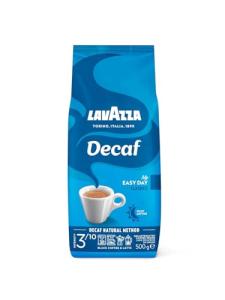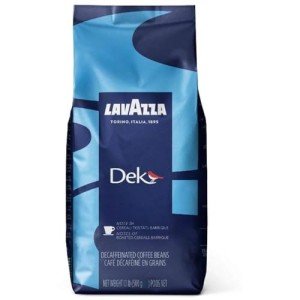Coffee has long been one of the world's most popular beverages, but the rise of consumer consciousness about ethical sourcing, health concerns, and environmental sustainability has ushered in a new era for coffee production. Among the most notable developments in this evolution is the growing demand for fairtrade organic decaf coffee beans.
These beans not only offer a delightful coffee experience without the caffeine jolt but also promise a more ethical and sustainable choice for consumers. In this article, we will explore what fairtrade organic decaf coffee beans are, their numerous benefits, and why they are a suitable choice for health-conscious consumers and mindful coffee drinkers alike.
Defining Fairtrade Organic Decaf Coffee Beans
To fully appreciate the benefits of fairtrade organic decaf coffee beans, it is helpful to break down each component of the term:
-
Fairtrade: This label signifies that the coffee has been produced under standards that aim to give farmers fair compensation for their labor and practices. Fairtrade cooperatives empower farmers by ensuring they receive equitable wages, which helps support their communities and promotes sustainable farming practices.
-
Organic: Organic coffee is cultivated without synthetic fertilizers or pesticides. This not only maintains the health of the soil and nearby ecosystems but also ensures that consumers do not ingest harmful chemicals. As a result, organic coffees often boast a richer flavor due to the natural farming techniques employed.
-
Decaf: Decaffeinated coffee offers a perfect solution for those who enjoy the taste of coffee but want to avoid caffeine for health reasons or personal preference. The decaffeination process has advanced over the years, with methods that preserve the flavor while removing caffeine.
Benefits of Fairtrade Organic Decaf Coffee Beans
Incorporating fairtrade organic decaf coffee beans into your lifestyle offers numerous advantages, which include:
1. Ethical Sourcing and Supporting Farmers
Choosing fairtrade products allows consumers to make informed decisions that positively impact farmers in developing countries. By directly supporting fair trade, consumers help ensure that farmers receive a living wage, which can contribute to better education and healthcare in their communities.
Key Benefits:
- Empowerment of Small Scale Farmers: Fairtrade certification supports local farmers by giving them greater access to international markets.
- Community Development: Many fairtrade cooperatives invest in community projects, like schools and healthcare facilities.
2. Healthier Options for Consumers
Fairtrade organic decaf coffee beans not only benefit producers but also the consumers who choose them. Organic coffee is known to have a lower level of potential contaminants, and decaf coffee allows individuals to enjoy the taste without the associated side effects of caffeine.
Health Benefits:
- Reduced Anxiety and Jitters: For those sensitive to caffeine, decaf offers a way to enjoy coffee without these adverse effects.
- Antioxidants: Coffee beans are rich in antioxidants, which can help combat oxidative stress in the body regardless of their caffeine content.
3. Environmental Benefits
Organic farming methods promote biodiversity, improve soil health, and reduce chemical runoff, contributing to a healthier ecosystem.
Environmental Benefits:
- Sustainable Practices: Organic farming encourages practices that protect the environment, including crop rotation and composting.
- Conservation of Biodiversity: Supporting organic coffee helps maintain local wildlife habitats and fosters soil restoration efforts.
4. Flavor and Quality
Consumers often find that fairtrade organic decaf coffee beans boast superior flavor profiles. The traditional methods of small-scale farming and harvest collection usually employed by fairtrade farmers can enhance the distinct characteristics of each bean.
Quality Indicators:
- Taste Variety: Fairtrade organic coffees often showcase unique flavor notes that reflect the terroir in which they were grown.
- Attention to Detail: Smaller farms often prioritize quality over quantity, resulting in a richer and more enjoyable coffee experience.
How to Choose Quality Fairtrade Organic Decaf Coffee Beans
When selecting fairtrade organic decaf coffee beans, consider the following:
List of Key Factors:
- Certification Labels: Look for official Fairtrade and organic certifications on packaging to ensure authenticity.
- Roasting Date: Freshness matters! Beans roasted within the last few weeks will provide the best flavor.
- Origin: Research the source of the beans; different regions offer different flavor profiles due to varying growing conditions.
- Roast Level: Choose the roast level that matches your personal taste – whether light, medium, or dark.
FAQs about Fairtrade Organic Decaf Coffee Beans
Q1: What is the difference between decaf coffee and regular coffee?
A1: Decaf coffee contains significantly less caffeine than regular coffee, generally around 2-5 mg per 8 oz cup compared to 95 mg or more in regular coffee.
Q2: Why is fair trade coffee more expensive?
A2: Fair trade coffee tends to be more expensive due to the higher wages paid to farmers and the sustainable farming practices employed. This can lead to a higher cost of production compared to conventional coffee farming.
Q3: What are the health benefits of drinking decaf coffee?
A3: Decaf coffee may provide the same antioxidants as regular coffee but with lower caffeine levels. It can reduce the risk of certain diseases and improve overall health without the jittery side effects of caffeine.
Q4: Can decaf coffee still taste robust?
A4: Yes! While some worry that decaf coffee might sacrifice flavor, high-quality fairtrade organic decaf can be incredibly flavorful due to careful processing and sourcing.
Fairtrade organic decaf coffee beans present a comprehensive solution for consumers who seek to indulge in their coffee passion while making ethical and health-conscious choices. By choosing these beans, coffee drinkers can support sustainable farming practices, empower global farmers, and enjoy the delightful taste of coffee—all without the side effects of caffeine. As the coffee industry continues to evolve, the emphasis on quality and sustainability in coffee production will only gain further momentum, ensuring a bright future for fairtrade organic decaf coffee lovers.






